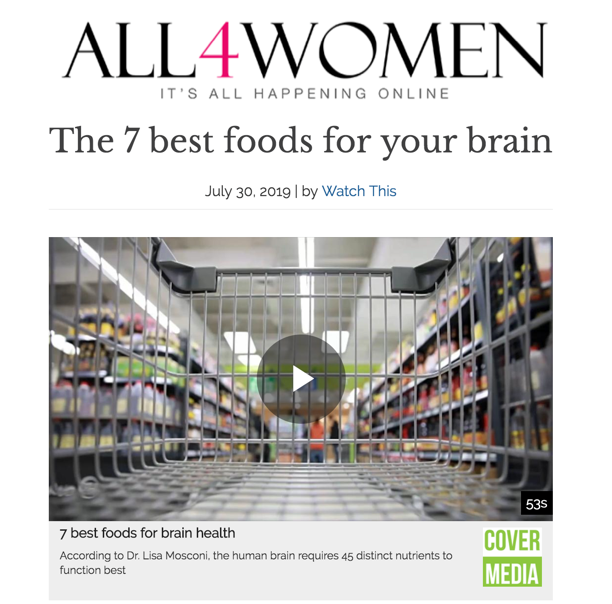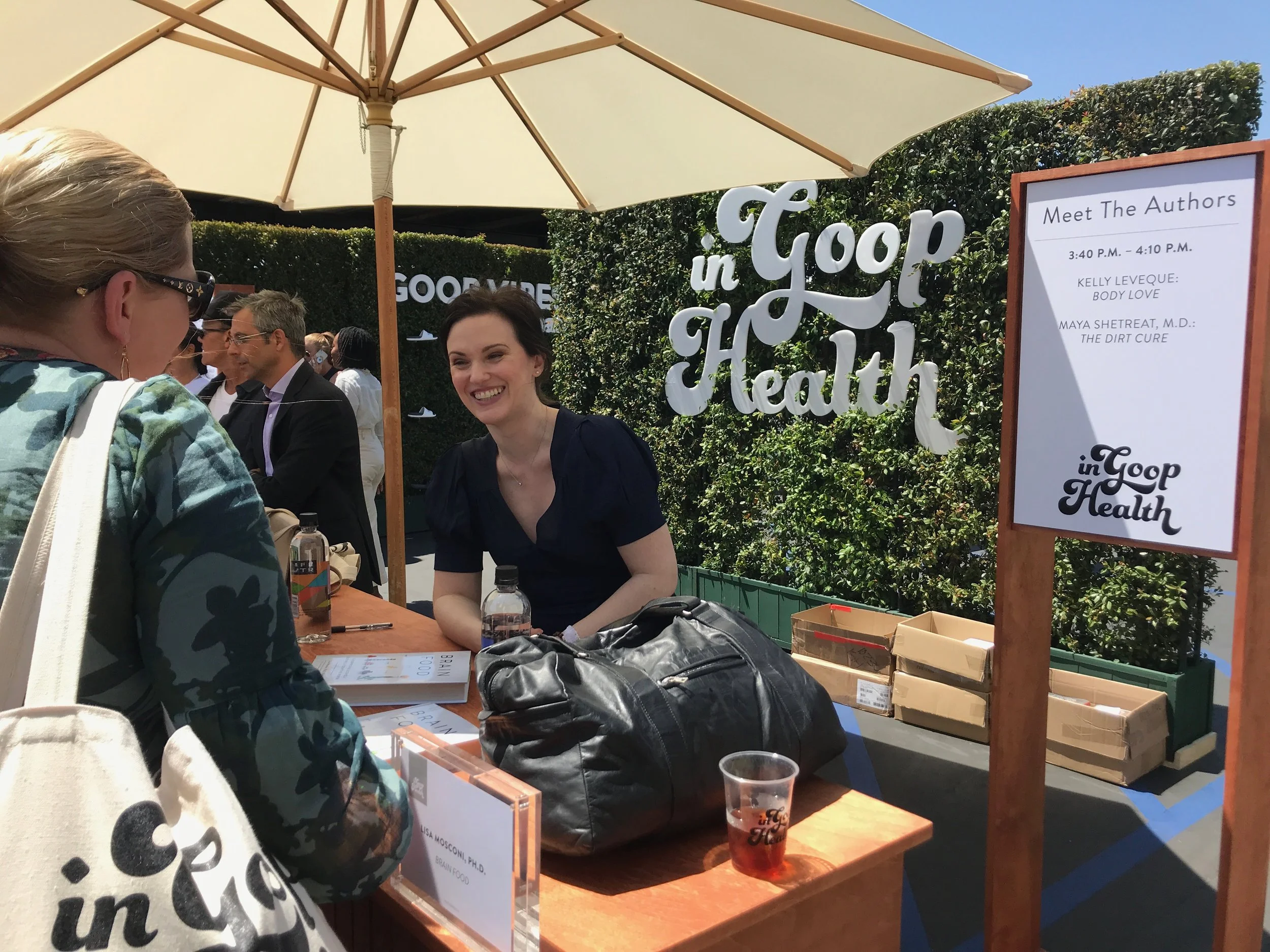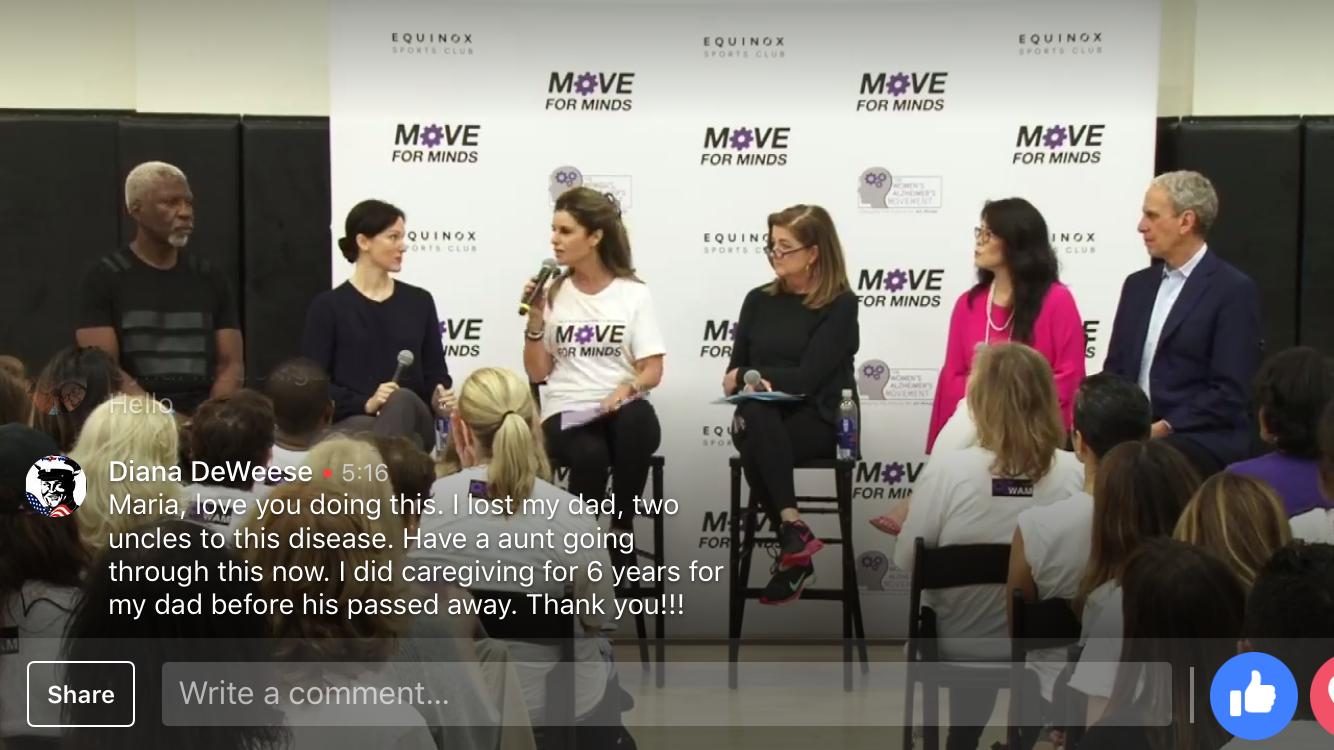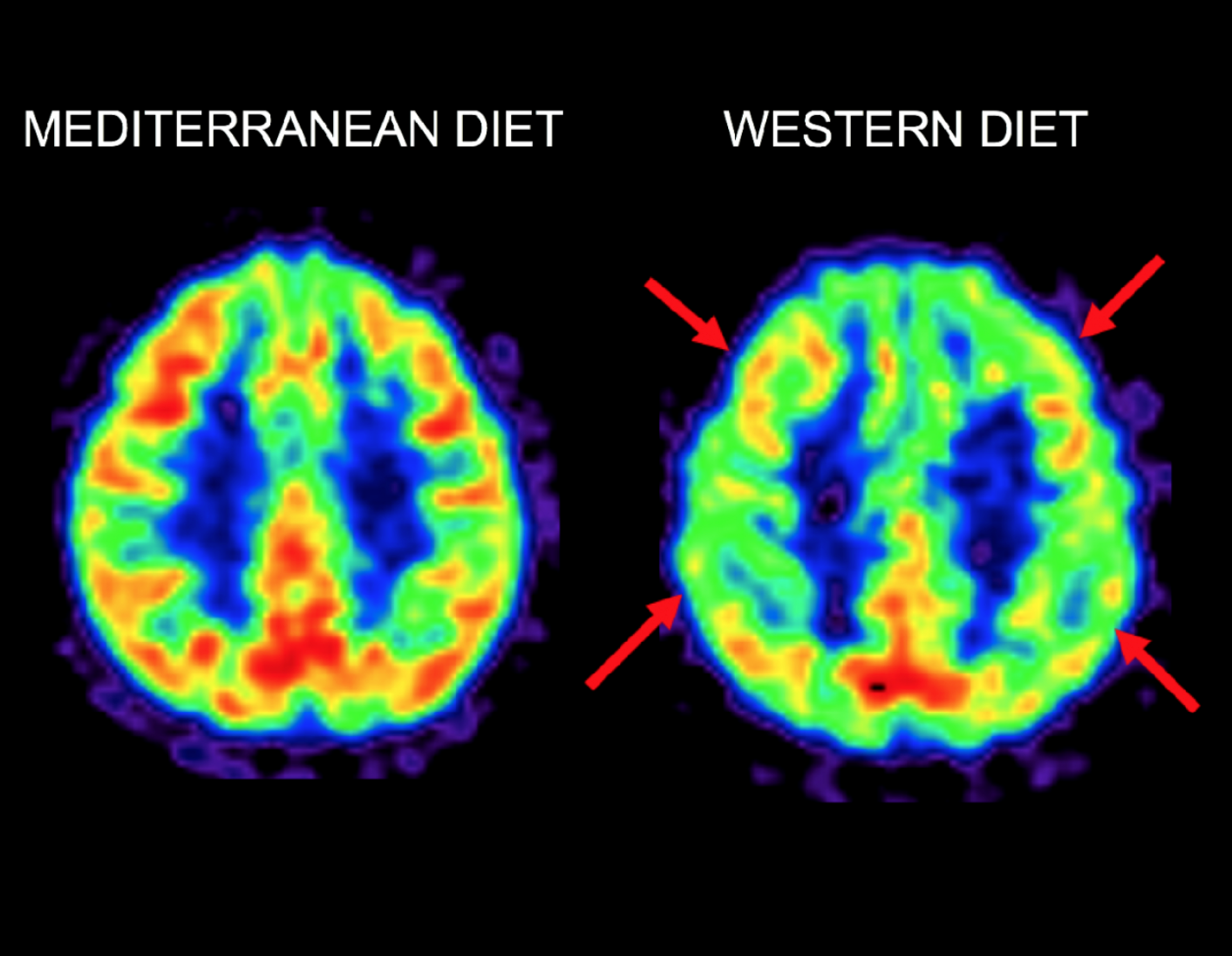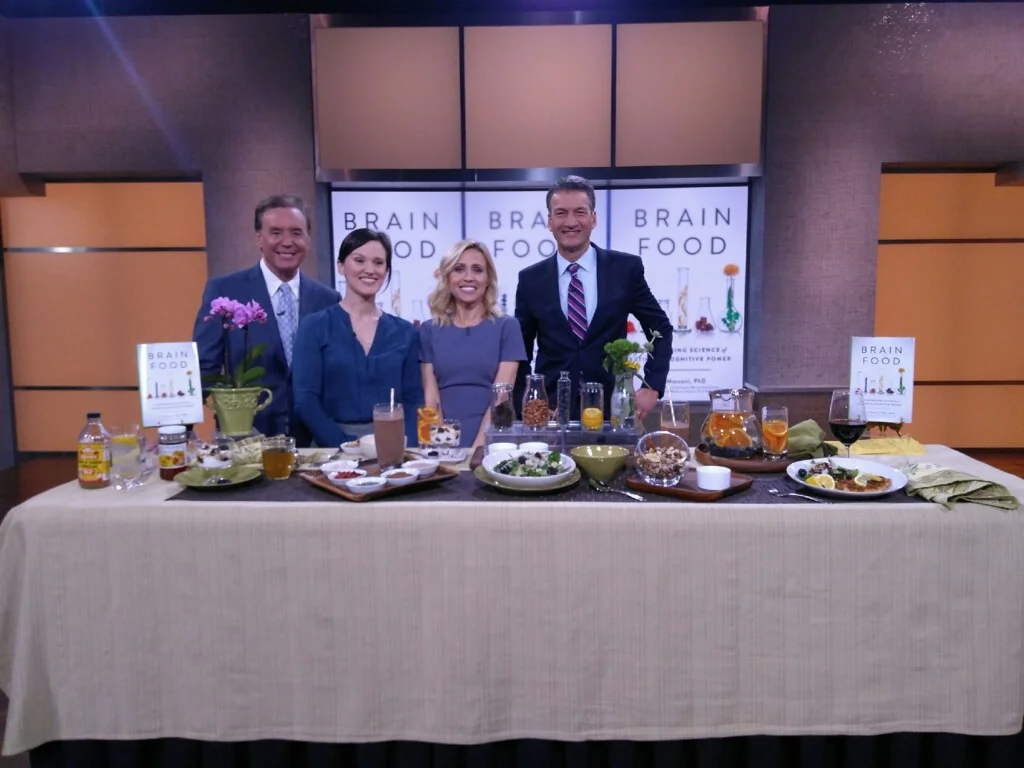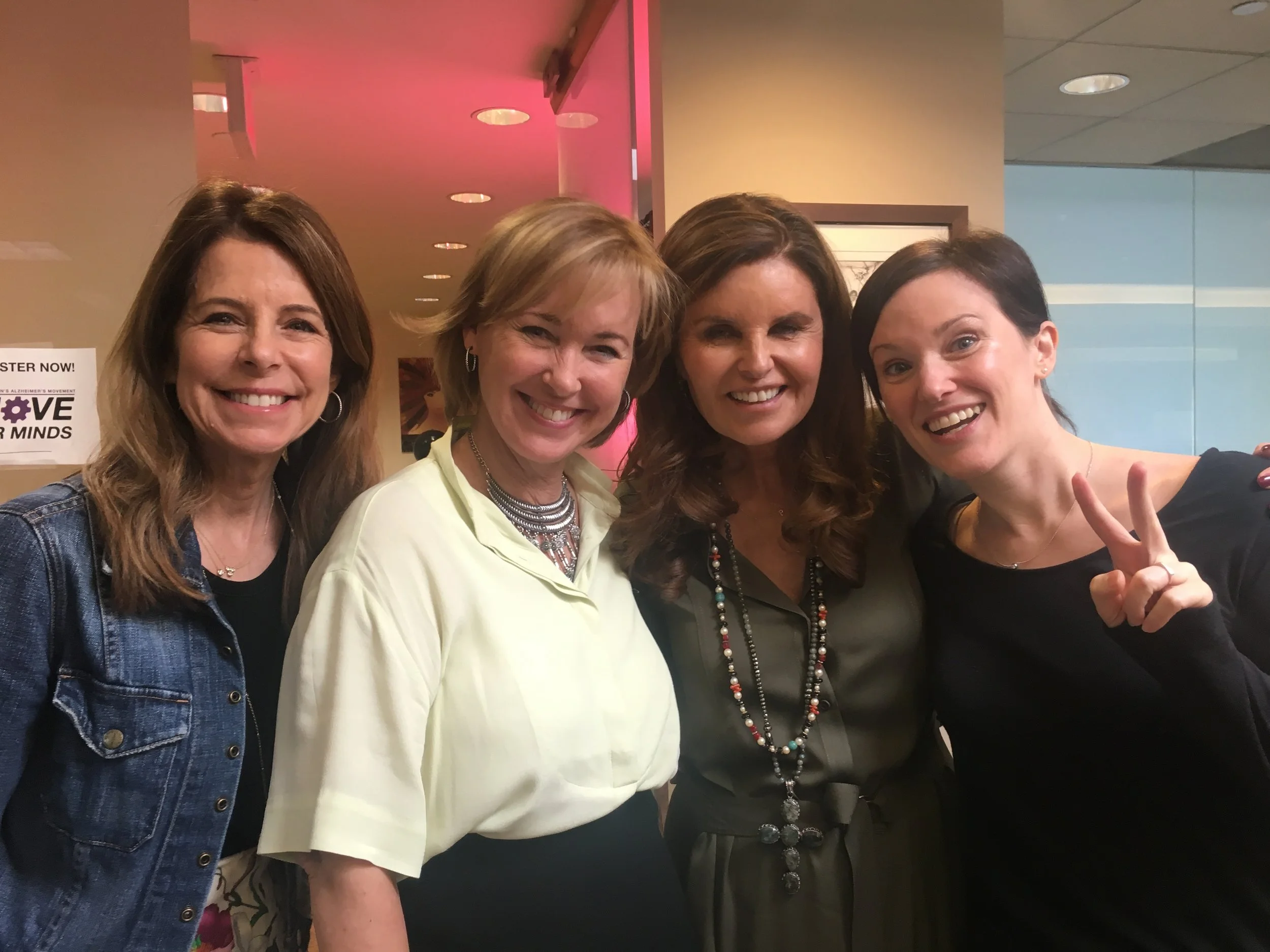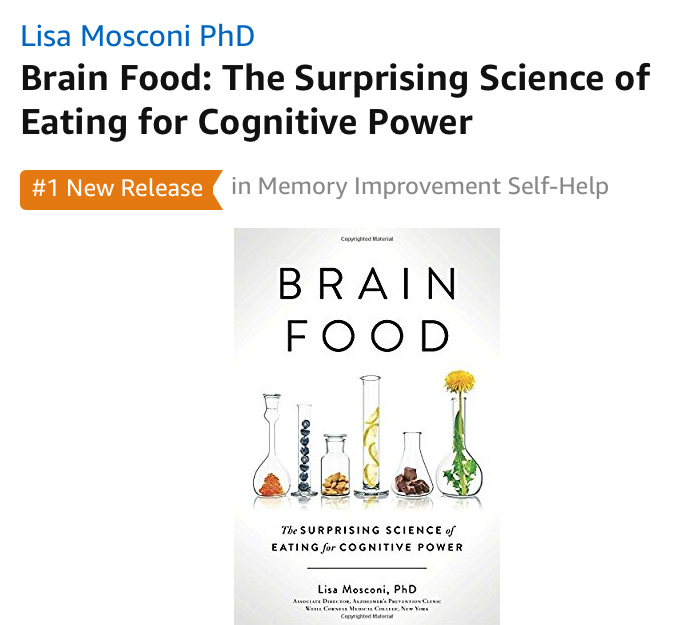The human brain requires at least 45 distinct nutrients to function best. While most of these nutrients are created by the brain itself, the rest are imported from our diet. Watch the video to find out what they are!
More than a quarter of adults in the United States age 50 and older take at least one supplement for brain-health reasons. Brain-health supplements generated $3 billion in sales globally in 2016 and are projected to reach $5.8 billion by 2023. Despite adults’ wide-spread use of brain-health supplements, there appears to be little reason for it. The new AARP + Global Council for Brain Health report is available here.
By Deborah Copaken: “Dr. Lisa Mosconi’s grandmother had two sisters and a brother. All three sisters died of Alzheimer’s. Their brother was spared. Why? […] Dr. Mosconi is actively looking for subjects right now for her new study, particularly non-white women in peri-menopause and menopause. If you fit that description, please contact the Weill Cornell Alzheimer’s Disease and Memory Disorder Program. I’m joining her study in the name of science as well. Also, so I can maybe remember the word artichoke in the future.” Read the story here.
“What are we supposed to make of the JAMA study published last week concluding that the dietary cholesterol in eggs is associated with a higher risk of heart disease and early death? The study, which analyzed data from six different observational studies involving 30,000 U.S. adults, found that for each extra half-egg eaten per day, the risk of cardiovascular disease (CVD) increased 6 percent, and risk of early death went up 8 percent—which sounds frightening at first glance.” Read my thoughts in this excellent midbodygreen article.
I've received so many emails asking for more information about the supplements discussed in Brain Food, that I decided to post a complete list for anyone who might be interested. I am going to start with Aloe Vera Juice and Chlorophyll. Aloe Vera is nature's best hydrator -- extracted from the leaf of the aloe vera plant, which contains about 99% water and over 200 active components including vitamins, minerals, enzymes, and fatty acids, this juice has well-established anti-inflammatory as well as hydrating properties. Liquid chlorophyll is ancient remedy used to heal wounds, build new red blood cells, and improve blood oxygenation. I drink both mixed with water first thing in the morning, and strongly recommend that you try too! You can find both easily online. [I have no conflicts of interest re: any of these products]
It was fun to join the hyper-healthy crowd at In Goop Health and share my thoughts on brain health, aging, longevity, and nutrition. Besides, I got to eat the most delicious vegan brownie on earth (if anyone knows the brand, let me know!).
It was wonderful joining Maria Shriver and The Women's Alzheimer's Movement at Equinox for move for Minds 2018! If you were among the hundreds of people who came out today, thank you! If you missed the event, check out the livestream here.
Our latest studies show that a Western-style diet triggers changes in the brain that may predispose people to Alzheimer’s disease decades before they show any sign of cognitive decline -- and that a Mediterranean-style diet is protective against those changes! The Alzheimer’s-related changes were worse in patients who also had reduced insulin sensitivity, and were independent of exercise and intellectual activity. In other words, when people are in their 40s and 50s, diet seems to exert a stronger influence on Alzheimer’s risk than exercise or intellectual activity do. Here's the link.
Thanks so so much to all of you for helping make my book, Brain Food, the #1 Memory Improvemen best seller on Amazon. I couldn't be more humbled by this experience. Scientists like myself don't often get the chance to take their research out of the lab and into people's lives. This book is the result of 15+ years of NIH-sponsored research in the field of cognitive improvement and Alzheimer's prevention, and I really put my heart and soul into it. I am very honored for the opportunity to help find answers to questions related to brain health and risk of dementia. Genes aren’t your destiny.
With each passing month, certain foods and fad diets come in and out of favor. One food that's been on the "bad" list for a while is bread—more specifically, gluten. Today, as many as 1 in 3 Americans avoids gluten—a protein found in wheat, barley, and rye—thereby eliminating grains and cereals from the diet. Is gluten really that bad? And what happens to your brain when you cut carbs from the diet? I was glad to share some thoughts, and some concerns, with My Domaine -- how does a scientist feel about the Great American Gluten Panic? The article is here.
Per tutti gli amici italiani che mi hanno chiesto "Ma il tuo libro quando esce in Italia?"... eccolo! E' disponibile tradotto in italiano in tutte le librerie, e in rete. Da tanti anni ormai faccio ricerca sull'Alzheimer. Quando ho cominciato, pensavamo all'Alzheimer come a un disturbo causato da mutazioni genetiche o eta' avanzata. In realta' la genetica certamente ha un effetto, ma per tanti pazienti lo stile di vita e' altrettanto importante. In "Nutrire il Cervello" (Mondadori), spiego come le nostre scelte -- la dieta in particolare, ma anche l'attivita' fisica, il coinvolgimento intellettuale, il sonno, lo stress -- influenzino la salute del nostro organo piu' importante e piu' delicato: il cervello. E' vero che la dieta protegge dall'Alzheimer? Si', e' vero.
So excited that our new paper in the British Medical Journal is available online, and is open access (read: you can read it for free!). The goods news: your risk of Alzheimer's is influenced by modifiable risk factors, like your lifestyle, which you have control over. Our study shows that, among lifestyle factors, diet is the one that matters most. Download the article here.
Renowned neuroscientist and nutritionist Dr. Lisa Mosconi joined KTLA Good news LA live with brain healthy recipes from her new book “Brain Food – The Surprising Science of Eating for Cognitive Power”. By drawing on more than fifteen years of scientific research and experience, Dr. Mosconi provides expert advice to prevent medical decline and sharpen memory. Her brain healthy recipes will help you maintain peak cognitive performance well into old age and therefore delay and may even prevent the appearance of debilitating diseases like Alzheimer’s. Watch the segment here.
How to avoid losing your mind to Alzheimer's or dementia. Hint: Start now, says Maria Shriver. At the Move for Minds 2018 kick off, Maria Shriver moderated a panel discussion on ways to help prevent dementia and Alzheimer's disease. Shriver, left, appeared at her Brentwood offices with Weill Cornell neuroscientist Lisa Mosconi, UC Irvine psychiatrist and sleep expert Ruth Benca, and physical trainer Anja Garcia. Read the article here.
The Best & Worst Foods For A Child's Brain, is a topic dear to my heart. The first three years of a child’s life are especially critical for brain development: during this window of time, a child figures out how to think, learn, behave, and explore, setting the stage for a fully formed set of cognitive skills. Based on many years of neuroscience research on my part (for adults) and peer-reviewed research from my colleagues: For your child’s brain as for your own, food plays a critical role. Your little one needs the most nutrient-dense foods that you can get your hands on. Read the article here.
There is a lot of confusion about nutrition and brain. In 2018, everybody is ditching carbs for fat. But are carbs really bad for you -- especially for women? In this issue of SHAPE magazine, we discuss healthy ways of eating carbs. Learn how to fuel up the healthy way here.
Very grateful to Thrive Global for their interest in how I got to be so passionate about brain nutrition. Like many Italians, my memories of my family and childhood are inseparable from memories of food. But it’s also true that my memories of my family and childhood are tied to nuclear physics, and sadly, seeing the devastating effects of dementia on my own family. The article is here.
Looking forward to doing a podcast with Genneve, a company dedicated to helping women in midlife and menopause. I care immensely about women, and strongly believe that more research is needed to better clarify how women's health needs are so profoundly different from men's -- a factor often overlooked in clinical practice. Listen to the podcast here.
Honored that my new book Brain Food has made @real_simple ’s list of Best Books of 2018 🙏🏻 😊 —"You've probably heard the phrase “you are what you eat,” but a more accurate revision might be, “You think what you eat.” In this fascinating investigation, Lisa Mosconi presents research that crosses disciplines to argue that what goes on in your brain—from your mood to your cognitive abilities—is very closely tied to what you put on your plate. In addition to being a compelling read, readers will find tips and outlines on ways they can change their diets for optimal brain health."
So happy. So grateful. Looking forward to Brain Food coming out tomorrow, March 6th 2018, in stores and online nationwide.
